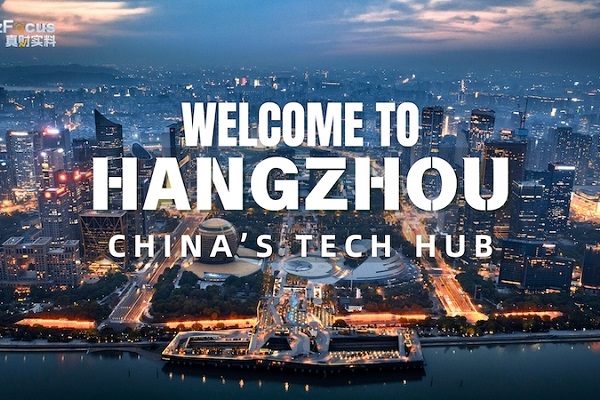Electrifying Hangzhou Asian Games with green energy
In a compelling demonstration of its resolute green and low-carbon drive, China will power the upcoming Hangzhou Asian Games with renewable sources of energy.
For the first time in the history of the Asian Games, the Hangzhou Asian Games, which is scheduled to kick off in late September, will achieve the goal of fully using green electricity as the regular power supply for all competition venues.
Green electricity refers to power supply with zero or near-zero carbon dioxide emissions during the production process and a limited environmental impact. At present, green power in China mainly includes solar and wind power.
Electricity generated from windmills in Hami in northwest China's Xinjiang Uygur Autonomous Region and solar panels in Jiayuguan in Gansu Province is transmitted across ultra-high-voltage lines to the host city of Hangzhou in the east.
Hangzhou has engaged in green power trading with diverse sources, including regions such as Xinjiang, Gansu, Qinghai, and its home province of Zhejiang, according to Li Shenfei, an official in charge of operation and maintenance of facilities at the venue construction department of the Hangzhou Asian Games Organizing Committee.
The host city has completed 16 transactions totaling 621 million kWh of green power, which is equivalent to saving 76,000 tonnes of standard coal. From March until the year's end, all 65 competition venues and offices of the Hangzhou Asian Games are powered by green electricity.
In keeping with the concept of a green Asian Games, the organizers have incorporated energy conservation and emission reduction into the design and construction of the venues. For example, one kWh of electricity can power an energy-saving lamp in the main stadium and natatorium for 100 hours.
Dynamic energy consumption management in the main stadium can help the venue improve energy efficiency by more than 10 percent. The natatorium maximizes the utilization of natural outdoor light for indoor lighting, which can help improve indoor lighting efficiency by more than 30 percent.
The glass roof of the esports venue can control the amount of heat radiation and natural daylight entering the venue, effectively reducing energy consumption and providing a comfortable indoor environment for the spectators.
With a sufficient supply of green electricity, the organizers of the Hangzhou Asian Games are also making every effort to ensure a reliable and stable power supply.
Through a smart command platform, the organizers can monitor the real-time power consumption data of nearly 300 Games-related locations including 56 competition venues and 31 training venues, Li said.
-
Xixi Wetland invites visitors to Huazhao Festival
March 25, 2025
-
Hangzhou sets standard for concert hosting
March 19, 2025
-
What is making Hangzhou the new tech powerhouse of China?
March 10, 2025
-
Inside Hangzhou: China's high-tech dream factory
March 12, 2025



